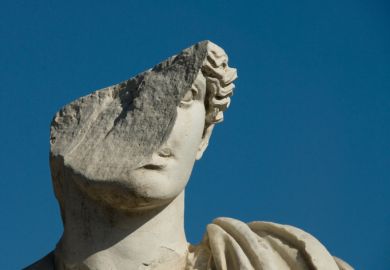Born in the same year as the future Queen Victoria, John Ruskin died the year before her, although he had lost his mind as well as his memory after dictating the last paragraphs of his remarkable autobiography Praeterita in 1889. He belongs unmistakably, therefore, to the 19th century. Reading only a selection of his voluminous writings, public and private, historians of Victorian England have seldom found it difficult to place him, relating him, however inadequately, to Thomas Carlyle and William Morris as one of the great critics of his age. Biographers, always in ample supply, have been fascinated by Ruskin less because of his place in the century than because of his extraordinary private life. It has been told time and time again.
"A man should choose his wife as he does his destiny," Ruskin wrote long after Effie had married J. E. Millais and he was begging Rose La Touche, disastrously, to marry him. This memorable sentence appeared characteristically not in a private letter - 40 volumes have been published - nor in the 30 volumes of his diary, but in a general statement entitled "Of Improvidence in Marriage in the Middle Classes and of the Advisable Restrictions of It". Rose La Touche, unnamed, unmentioned, made her way between the lines into many of Ruskin's public articles and lectures, including the second of his lectures at Oxford as the first Slade professor of art in 1869, which bore the most general of titles, "The Relation of Art to Religion".
Ruskin's statements about "destiny", a word that meant much to him, are just as scattered, often in unobvious places, as are his more muffled comments about sex. Because he is so eminently quotable, there is a third kind of writing related to him that has had just as much appeal as history,including art history, or biography. The first Ruskin commentaries, often introducing anthologies of selected passages from him, were published in his own lifetime - Ruskin on Music and Ruskin on Education - in 1894. One of the best known of later anthologies was by Kenneth Clark, inter alia author of the television series Civilisation . It was called Ruskin Today and was published in 1964.
It does not figure in the extremely disappointing "bibliography" of the well-produced catalogue to the wonderful Tate Gallery exhibition on Ruskin, Turner and the pre-Raphaelites. Nor, indeed, do many of the most stimulating books on Ruskin, some American. As a book-list, it offers no guidance to the visitor, even though the object of the exhibition is the same as Kenneth Clark's in 1964 - "to explore not Ruskin's distance from us as a Victorian sage, but his modernity in his own time, and his modernity as someone who still has something to say now".
Put so explicitly, this sounds sensible enough, and the idea of exhibiting as well as "explaining" Ruskin is fitting for his centenary. It is particularly necessary, however, at the beginning of the 21st century, to relate our own new century, which still has no contours, to the two centuries that have preceded it. We are in grave danger of forgetting our own history in almost everything that we celebrate. The introduction to the catalogue starts properly with a Ruskin statement from the first volume of Modern Painters (1843), which begins with the words: "When public taste seems plunging deeper and deeper into degradation day by day and when the press universally exerts such power as it possesses to direct the feeling of the nation...". This part of the long opening sentence is largely ignored in the catalogue, however, and all the attention is focused on the second positive part of it, Ruskin's call to duty: "... it becomes the imperative duty of all who have any perception or knowledge of what is really great in art, and any desire for its advancement in England... to declare and demonstrate, wherever they exist, the essence and the authority of the Beautiful and the True".
Ruskin was only 24 years old when he wrote these stirring words, which ring with confidence. But why do they not ring with similar confidence in 2000? Before returning to the exhibition to try to answer it for ourselves,it is essential to examine in some detail both Ruskin's motivations, which constituted a mission, and the context of the society and culture in which he preached - the only possible verb to use, with the adverb "prophetically" added to it. Fortunately, in parallel with the exhibition, Tim Hilton has published the second volume of his admirable biography of Ruskin, taking up the story in 1859, and Michael Wheeler, former director of the Ruskin programme at Lancaster University, who has had much to do with the exhibition, has produced a learned, heavily footnoted monograph that probes Ruskin's developing attitudes towards religion and myth. It was these, Wheeler suggests, that shaped his attitudes towards material things and the development of the market-driven Victorian economy.
The Ruskin quotation that Wheeler draws upon in introducing his first chapter relates to an even earlier date than 1845. Ruskin was only ten years old when his father wrote to him, using a dark verb. "You may be doomed to enlighten a People by your Wisdom, to adorn an age by your Learning. It would be sinful in you to let the powers of your mind lie dormant through idleness or want of perseverance when they may at their maturity aid the cause of Truth and of Religion and enable you to become in many ways a Benefactor to the Human Race." Not "the Beautiful and the True", but "Truth and Religion". It is fair to add that Ruskin's father, John James, a notable man in his own right, added: "I am forced to smile when I figure to myself the very little Gentleman to whom I am addressing such Language".
To appreciate fully "the essence and authority of the Beautiful and the True" Ruskin had to explore the art of centuries long before the 19th, studying "ancient" painters as well as "modern". Hilton has chosen to divide his two-volume biography at the year 1859, an annus mirabilis in Victorian culture, and in 2000 he has re-affirmed his belief that Ruskin was "a better writer and a more considerable person in his later than his earlier years". In his account, the 1859 break has nothing to do with a national annus mirabilis . It was highly personal. In his diary, Ruskin, then 40 years old, called the year "The Beginning of Sorrows". Hilton gives no titles to his chapters, although, like Ruskin himself, he discerns "patterns", sometimes criticising sensitively the patterns that Ruskin traced himself in Praeterita . He also regrets the volumes Ruskin promised but never wrote.
To divide the life and work of any writer into "early" and "late", as has also been done with Marx and Morris, is to beg interesting questions about the relationship between author and context; and these arise naturally when Ruskin's later and strangely innovative work Fors Clavigera (1871-1884) is skimmed through, let alone read. For Hilton this was Ruskin's masterpiece. If Marx and Morris became more "systematic" in their later lives, Ruskin became less so. Fors rambled into incoherences, and although it was addressed to "the workmen and labourers of England", an apparent link with Marx and with Morris, the conjunction must be handled as delicately as Hilton handles it. A younger or a happier Ruskin could never have written Fors . "To read it," his secretary W. G. Collingwood wrote, "is like being out in a thunderstorm." By then Ruskin was living through thunderstorms himself. "This man began to build, and was not able to finish" (Luke, xiv: 30).
To chart Ruskin's shifting dependence on the Bible not year by year but across over-arching time, it is necessary to turn to Wheeler, who is concerned not with fact but with faith. His book will provoke argument among Ruskin scholars, not dissimilar to the argument that has surrounded William Blake. Yet through the Fors years a new institution, the Guild of St George, was brought into existence - it has a history of its own - and, equally important, a new Ruskin geography took shape. Sheffield was now to figure prominently on Ruskin's map - one of the oddest of maps, and something more than a mental map - which incorporated among its most prominent places Scotland (often left out by historians), the Alps, Venice,Aosta, Oxford, Winnington Hall in Cheshire (Hilton is excellent on this), Bradford (he is less good on this than Hardman, whom he does not mention) and ultimately Coniston.
Much has been written of Ruskin and geology. The geography requires almost equal attention. Aosta, which Ruskin visited with Effie in 1851 - one in five of the population there was goitred - figures because when Ruskin saw and bought the painter John Brett's Val d'Aosta in 1859 he described it as "landscape painting with a meaning and a use... For the first time in history we have, by the help of art, the power of visiting a place, reasoning about it and knowing it, just as if we were there." He went on to explain, however, that it had a "strange fault": "it seems to me wholly emotionless. I cannot find from it what the painter loved or feared... I never saw the mirror so held up to nature; but it is Mirror's work, not man's." How and why Ruskin admired the pre-Raphaelites, while he could criticise individual paintings, and at the same time could venerate Turner, whose painting was so different, is not entirely explained in the exhibition. Nor have its organisers confronted the crucial question of the role of individual or collective "authority" in defining "the essence and authority of the Beautiful and the True". The Academy Notes, where Ruskin judged Brett, did. The Economist , a weekly which expounded a very different version of political economy from that which Ruskin was to expound after 1859, had offered a warning in 1857. Given that the Notes were "of extreme practical importance to all exhibitors" and were "in almost as universal use as the catalogues", "such success entail(ed) great responsibility upon their author".
Ruskin could be inconsistent - he prided himself on this - and erratic as the years went by, uneasy about his authority over himself. The glass darkened; the detail deters. I fall back myself on general lines from Ruskin, quoted in the catalogue, which I have often quoted in encouraging people to look for themselves. "Hundreds can talk for one who can think, but thousands can think for one who can see. To see clearly is poetry, prophecy, and religion - all in one." If Ruskin makes us learn to look for ourselves his mission will be discharged.
Lord Briggs was formerly provost, Worcester College, Oxford.
Ruskin's God
Author - Michael Wheeler
ISBN - 0 521 57414 5
Publisher - Cambridge University Press
Price - £40.00
Pages - 302
Register to continue
Why register?
- Registration is free and only takes a moment
- Once registered, you can read 3 articles a month
- Sign up for our newsletter
Subscribe
Or subscribe for unlimited access to:
- Unlimited access to news, views, insights & reviews
- Digital editions
- Digital access to THE’s university and college rankings analysis
Already registered or a current subscriber? Login



